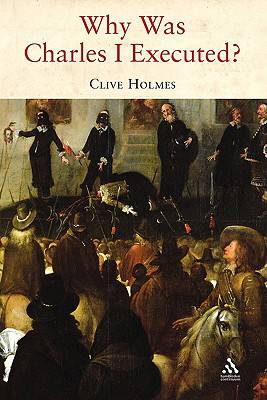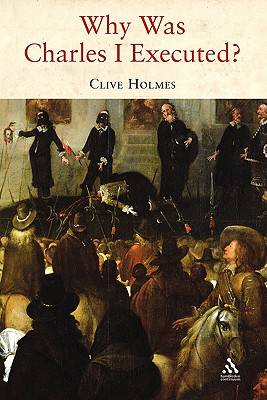
Bedankt voor het vertrouwen het afgelopen jaar! Om jou te bedanken bieden we GRATIS verzending (in België) aan op alles gedurende de hele maand januari.
- Afhalen na 1 uur in een winkel met voorraad
- In januari gratis thuislevering in België
- Ruim aanbod met 7 miljoen producten
Bedankt voor het vertrouwen het afgelopen jaar! Om jou te bedanken bieden we GRATIS verzending (in België) aan op alles gedurende de hele maand januari.
- Afhalen na 1 uur in een winkel met voorraad
- In januari gratis thuislevering in België
- Ruim aanbod met 7 miljoen producten
Zoeken
Omschrijving
The execution of Charles I in 1649, followed by the proclamation of a Commonwealth, was an extraordinary political event. It followed a bitter Civil War between parliament and the king, and their abject failure to negotiate a peace settlement. Why the king was defeated and executed has long been a central question in English history. The old answers, whether those of the historian S R Gardiner or of Lawrence Stone, no longer satisfy. Clive Holmes supplies clear answers to eight key questions about the period, ranging from why the king had to summon the Long Parliament to whether there was in fact an English Revolution at all.
Specificaties
Betrokkenen
- Auteur(s):
- Uitgeverij:
Inhoud
- Aantal bladzijden:
- 262
- Taal:
- Engels
Eigenschappen
- Productcode (EAN):
- 9781847250247
- Verschijningsdatum:
- 1/08/2007
- Uitvoering:
- Paperback
- Formaat:
- Trade paperback (VS)
- Afmetingen:
- 159 mm x 231 mm
- Gewicht:
- 412 g

Alleen bij Standaard Boekhandel
+ 145 punten op je klantenkaart van Standaard Boekhandel
Beoordelingen
We publiceren alleen reviews die voldoen aan de voorwaarden voor reviews. Bekijk onze voorwaarden voor reviews.









